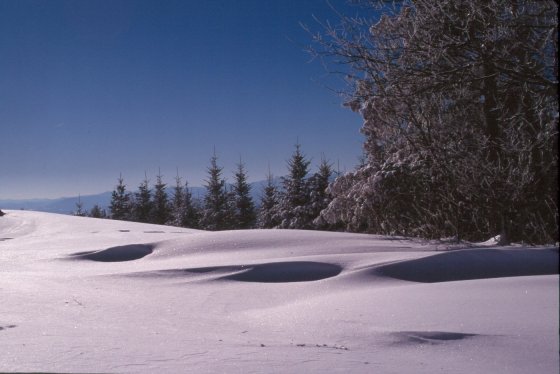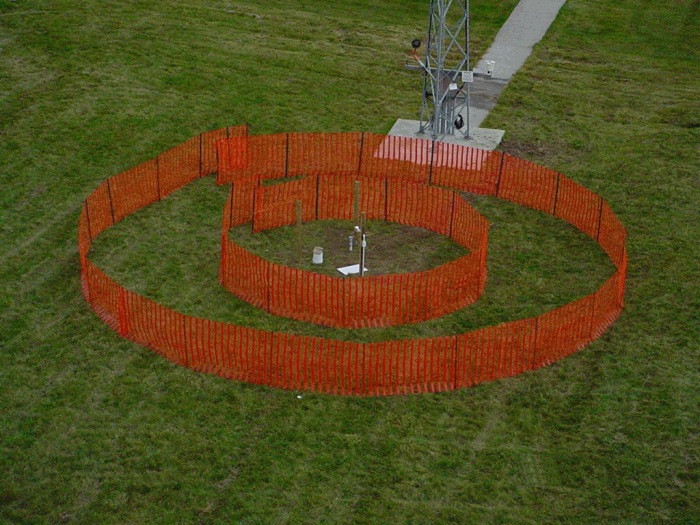I read science fiction. A lot. It goes hand-in-hand with the reasons I fell in love with science, as I posted about a while ago. One of the most fascinating concepts in science fiction in recent years (being since the 1970’s that I’m aware of, though probably much older than that) is the idea of a post-scarcity society. They’re all over the place in science fiction (just check out this list on io9). I always found the idea of post-scarcity alluring (who wouldn’t want to live in a world where you don’t have to work?), but even more fascinating to me is what the transition from our current society to a post-scarcity society would look like. Continue reading
My Love of Science
I thought I had an original idea to write a post about my love of science, but Andrea, The Little Red Reviewer, beat me to it. But I’m still going to do it anyway!
Science is my cocaine. Very rarely, I come across an idea so astounding, so fascinating, so clever, so original, so unexpected, so new, so wonderful that my brain just goes all fizzy. And I keep inhaling more science in the hopes of recreating that experience. Off the top of my head, I can think of two occasions that this happened to me and once that I was able to induce that feeling in someone else. Let me share with you those moments so maybe you can understand why I love science so much.
Death of the Dinosaurs
The last time this happened to me was only a few years ago. I am a huge fan of Radiolab, so when they went on tour, Maria and I went with a few of my friends to see the show. Their first story was on the meteorite impact that probably killed the dinosaurs. An expert on impacts walks the hosts through the impact of the meteorite and its effects. Trust me, it’s WAY cooler than you think. Like, fire raining down from the sky everywhere on earth cool. I’d actually prefer you spend an hour of your time to watch so you can experience it rather than me trying (poorly and unsuccessfully) to recreate it.
While sitting in the live show, I was in such a state of shock at the realities of the aftermath of the impact that I lost track of what was happening onstage for like five minutes. The horror and wonder of it was … transcendental.
The One Where the Quantum Theory Shut a Motormouth Up
I was in the Boy Scouts for a long time, through high school and much of college. As there often is in any group of kids, there was a boy, we’ll call him Frank, who just never … stopped … talking. Ever. Until one time, I got him to shut up for like half an hour by blowing his mind … with SCIENCE!
I recall this day pretty well. We were wasting some time at summer camp, hanging out during our afternoon free time. He asked me to tell him something cool about science since he knew I loved science and he thought it was really boring. So, I decided to tell him about something I was just learning about at the time: the many worlds interpretation of quantum theory. The tl;dr version is that each moment might branch off into infinite other universes based on different outcomes of events. So, there’s a universe where Hitler didn’t kill himself and there’s a universe entirely identical to this one except a single blade of grass got bent slightly differently when a lawnmower passed over it, and there are universes in between. In the Schrödinger’s cat example, there’s a universe where the cat is alive and a different universe where the cat is dead.
This blew Frank’s top right off of his head. He sat quietly for about half an hour, working through the implications of this. It was a small miracle. I was able to stop him from talking longer than anyone else ever had and I did it with quantum physics.
Pre-Algebra Opens My Mind
You ever have one of those moments so ingrained in your mind that you can recall many more details than you otherwise would? This particular memory comes from my middle school pre-algebra class and is the first time I recall having my mind blown open by science. I remember that I was sitting in the second seat from the front of either the second or third row away from the window. I remember my teacher telling us that she was introducing us to a completely new concept. We’d spent a ton of time learning other pre-algebra topics like factoring, order of operations and other stuff like that.
That’s when she wrote a big “x” on the board. And said that was a number. What number, we didn’t know. But it represented a number. It was called a “variable”, and it could be used in equations to represent numbers we didn’t know. And just like that, all the math I had learned in my life up until that point suddenly clicked into place. We had been learning all this stuff seemingly pointlessly. But if we were able to use variables in the equations, just imagine the endless possibilities math could introduce.
Imagine that you lived in one room all your life. Then, one day, someone removed a wall, revealing a much larger world outside that room. That’s what it felt like. I realized that there was so much more than I had seen before. And I was hooked.
Rain vs Snow: the Spring Showdown
It’s spring, which, in Michigan, means lots of rain. Maria and I were driving home in the rain earlier this week when she asked me a question I’d not really thought about: “How much snow would this rain be if it were much colder?” My answer was about 3 inches, but I couldn’t remember why that was my guess. So I started looking, which led me down a rabbit hole of snowfall predictions.

The amount of snow that an equivalent amount of rain would produce depends mostly on the temperature. The National Weather Service actually has a chart showing these exact ratios. And here it is in all its boring, monotype glory:

So, around freezing, the amount of snow would be about ten times the amount of rain. At 0º F, it’s about 40x. That’s crazy! The Detroit area received about 1.5 inches of rain on March 24, 2016. That would have been about 15 inches of snow at freezing, or about 30 inches of snow at 17º F. WOW.
I had no idea that the amount of water in an inch of snow was so little. I mean, it makes sense when you remember that snow crystals are mostly air and it’s not like they lay flat on top of each other. They’re all jumbled up. It also makes sense that the colder it is, the fluffier the snow, and the more inches of snow you get for an equivalent amount of water.
Thinking about that crazy amount of snow you’d get from the equivalent of 1.5 inches of rain got me thinking about just how often snow forecasts are wildly inaccurate. Like, when it rains, it doesn’t make a huge difference to your average person if you get 1 inch of rain or 1.5 inches of rain. But for those same amount of water, you can get a 5 inch difference in the amount of snow. Weather forecasting is hard enough as it is, but the snow amounts greatly magnify any errors that the forecaster makes. There are other reasons besides temperature and the amount of moisture for the difficulty in predicting the amount of snow, but it seems that these two are the most important.
On a sort-of-related note, actually measuring snowfall once it is on the ground is a really complicated process in and of itself. Just look at this set up the Grand Rapids, MI National Weather Service office has for its pilot project for automated measuring of snow.

Wikipedia Sucks at Science
Ars Technica (my favorite tech website) published an editorial a little while ago that really struck a chord with me. To wit: Wikipedia’s science articles are utterly unreadable to the general, average user. Which means that Wikipedia’s science articles are failing in their mission. Continue reading
7 Fun Things About Time
Time is a funny thing. It is one of the most important commodities we have, and has been so since the industrial age began (at the very least). Yet, somehow, it seems so malleable, fluid, ungraspable. And so, I wanted to share with you some fun aspects of time that intrigue me, in no particular order.
The Incan Empire
When you learn about history, it’s often broken up geographically, so it’s hard to really tie two areas together. Like, the Incan Empire. It’s often seen as an ancient civilization. I mean, look at Machu Picchu. It looks like it’s at least a thousand years old.

But it’s not. It was built around 1450, making it 560 or so years old. The Incan Empire is only a little bit older.
There’s another institution that was founded well before then that is still alive and healthy today.

Yup, Oxford University. Apparently, the foundation date of Oxford is lost in the mists of time, but they have been educating there since at least 1096. That’s almost 400 years older than the Incan Empire. Really puts the “ancient” Machu Picchu in perspective.
Time Passing Faster as You Get Older
Now that I’m in my thirties, I have been noticing that the years are seeming to go by faster and faster every year. It’s kind of fascinating to think about the brain working like that. After all, it’s not like the time is actually moving any faster for us here on the Earth’s surface. So why does time seem to fly by quicker and quicker every year?
There’s no certain answer yet, but the Scientific American Mind blog has a great post that summarizes the current theories:
- There are less memorable events day-to-day in some periods of your life rather than others, so those periods seem to have taken longer (like 4 years at college versus 4 years of your daily career)
- A year to a child seems longer because it is a much larger portion of that child’s life than a year is to someone in their 40’s
- Our biological clocks slow down as we get older
- The passage of days gets less attention as you age. After all, we’re not all counting down the days till Christmas with nearly the level of attention that a 6 year old does.
- Stress makes time seem to be in short supply and we are more stressed as we get older. So, since we’re more stressed, there seems to be less time the older you get.
Time Capsules … IN SPACE!
I listened to an audiobook recently called Cryoburn, which involves a lot of cryogenic freezing. The book is great (it’s written by Lois McMaster Bujold and is part of her Vorkosigan Saga, if you’ve heard of it), but it got me curious about cryonic freezing. With current technology, people can be cryonically frozen in the hopes of being reanimated later, usually to cure whatever killed them in the first place. However, no one has figured out how to reanimate a full animal from cryonic sleep, let alone that we haven’t made major advances in curing the medical conditions that motivate someone to use cryonics in the first place.

It occurred to me that there’s another way to achieve the same objective, but requires only physics and engineering rather than insanely complex biology: relativistic space travel. One consequence of the law of Special Relativity formulated by Einstein is that time goes slower as your speed increases. It’s not really noticeable at slow speeds, but if you get up to like 80% the speed of light, time moves one-third slower (2 seconds pass for every 3 seconds on Earth). If you are at 90%, time moves at half-speed (1 second for every 2 seconds on Earth). And so on. If you can get fast enough, rather than freezing people, you could just throw them into a space ship, send it out for what would seem like a year on the ship and come back many, many years later, hopefully to a cure to what ails them. And no freezing!
Time as a Part of the Space-Time Continuum
Physics is, in a word, strange. As a species, we’re still working on our understanding of the universe, but one of our best theories on the nature of the universe is Einstein’s Theory of General Relativity. General Relativity has an interesting premise: space and time are two parts of the same thing. They are unified and inseparable. And every test we’ve thrown at this theory confirms it over and over again.

Under General Relativity, the gravity of a planet warps space so that things fall toward it. But, because space and time are one and the same, the gravity of the planet also affects time the closer you get to it. The stronger the gravitational pull, the faster time goes. The gravity of black holes is so strong that, if you were falling into one and looked up away from the black hole, you could watch the entire life of the universe as time for you would have sped up so much.
Time Zones
Such an integral part of our lives as time zones would seem to be as old as the country itself. Well, if you thought that, you’d be wrong.
Nope, the United States did not have standardized time zones until March 19, 1918. That’s just eight months shy of the end of World War I and it hasn’t even been 100 years since then. These babies are practically brand new on the world stage.
Granted, railroads did have their own time zones set up as early as 1847 in England and the early 1870’s in the United States. But those weren’t standardized even among the railroads for long periods of time.
The Weirdness that is Daylight Savings Time
Ahhh, spring forward, fall back. I do hate losing that hour of sleep in the spring, but it sure is nice to have that extra hour of sleep in the fall.

Daylight savings time started in the US at the same time standardized time zones did, in 1918. The initial justification for it is that it provides more daylight at the end of the day which benefits retailers and allows for more exercise outdoors, etc. Other justifications include increased energy savings, reduced car crashes, and health benefits. But almost every single one of these justifications is either debatable or offset by a myriad of other problems caused by daylight savings time, including adverse economic effects on farmers and several other industries, disruption to the lives of those who live by the sun, increased risk of heart attacks and decreased sleep.
The Timing of Communications
The time lag of communications has been a problem throughout history, really only starting to be overcome in the past hundred years or so with the development of radio, telephone and the internet. For all the lives of me, my parents and my grandparents, nearly instantaneous communication across the oceans has been rather accessible. But in the 1800’s, a message had to be sailed across the ocean, which could take a couple months. Heck, even in the US itself, a piece of mail might take several months to get from one side of the country to the other. This is an almost unthinkable amount of time delay in communications now.
Sometimes, the reverse situation is true, though. I keep thinking of an episode of Hardcore History by Dan Carlin, but I cannot remember which one, where he talks about an ancient invasion, most likely a barbarian invasion of Rome. Because of how difficult it was to move armies and how slow moving they could be, you could learn about an oncoming invasion well in advance of the army itself arriving. Imagine how paranoid and bad things could get in a city when you knew an army was coming for you, but might not arrive for months. That would be insane. Hell, it’s bad enough nowadays when people learn that a winter storm is coming.
Star Wars Nostalgia
As all you beautiful nerds are aware, Star Wars, Episode VII: The Force Awakens comes out in less than two weeks. It just makes me giddy in anticipation. So much so that I’m going to include the trailer again here, just so you don’t have to go hunt it down to watch again.
In anticipation of this event, I wanted to reminisce on my introduction to Star Wars and my love affair with it through my early teen years.

Why, yes, I do have a Favorite Mathematician: Leonhard Euler
In response to a question that I’m just certain was on all of your minds, I actually do have a favorite mathematician. His name is Leonhard Euler.
On Realizing that It’s OK to Dislike a “Classic” Book
I’ve been an avid reader of science fiction for a very long time. I honestly cannot say what brought me into the genre, but I have a feeling it was my introduction into Star Wars sometime in sixth or seventh grade. I’ve been hooked ever since.
Some time in college, I decided that I should read some of the more important books in the genre. To help me along, I decided to try and read as many of the books on the Basic Science Fiction Library list maintained by the Gunn Center for the Study of Science Fiction at the University of Kansas. I’m still slowly making my way through the books, but I’ve had some trouble with one in particular.
The Hugo Awards, Redeemed
The 2015 Hugo Awards
Well, it seems that science fiction fandom has rejected the Sad Puppies and the Rabid Puppies wholesale.
Online Marketing, or The Hymn of Acxiom
As I’ve gotten more and more into the professional side of blogging over at Crazy Together, I’ve learned surprisingly little about advertising. Google AdSense is pretty easy to set up for your own website, but you don’t really learn much about how those ads are chosen for display on your site. I’ve actually learned more about advertising from a song by Vienna Teng called The Hymn of Acxiom.
I adore this song on its own, but its even more interesting when you learn that it is about internet marketing. [Nerdy side note, the cover of the album is a heat map of population shifts in the Metro Detroit area, where I live.] Acxiom may sound like a made-up word for the song, but Acxiom is a real company.



